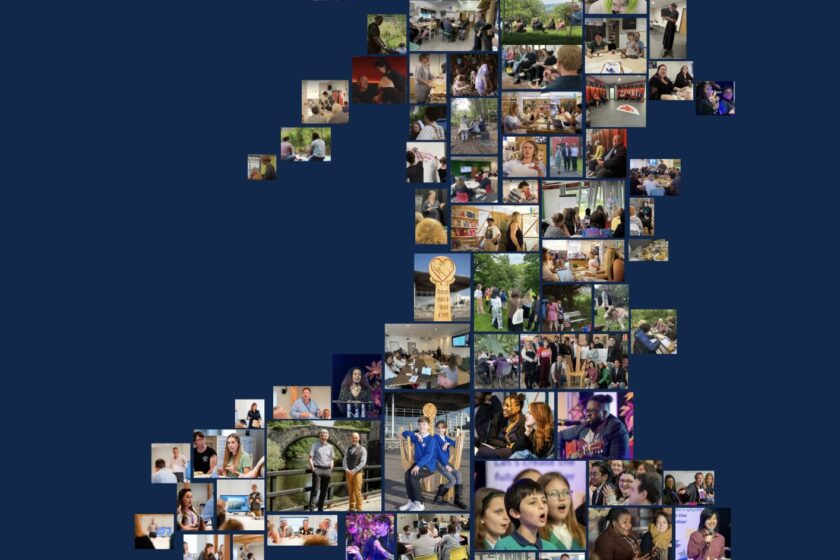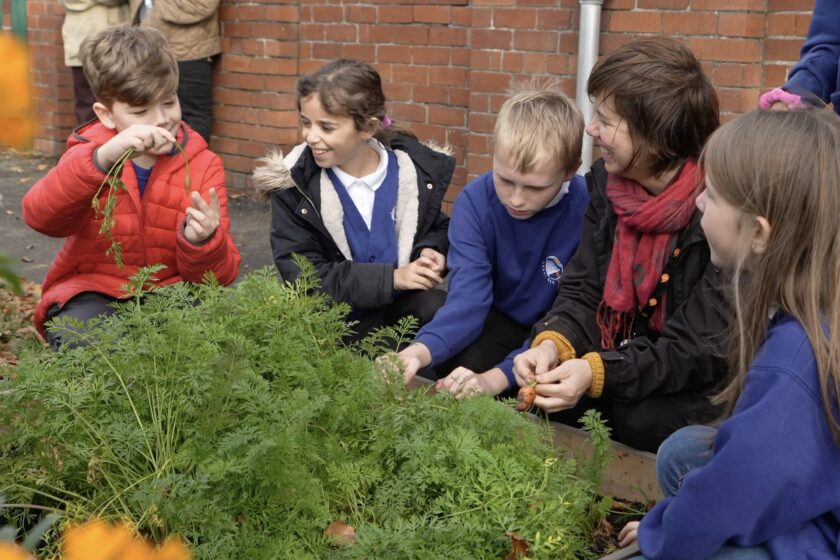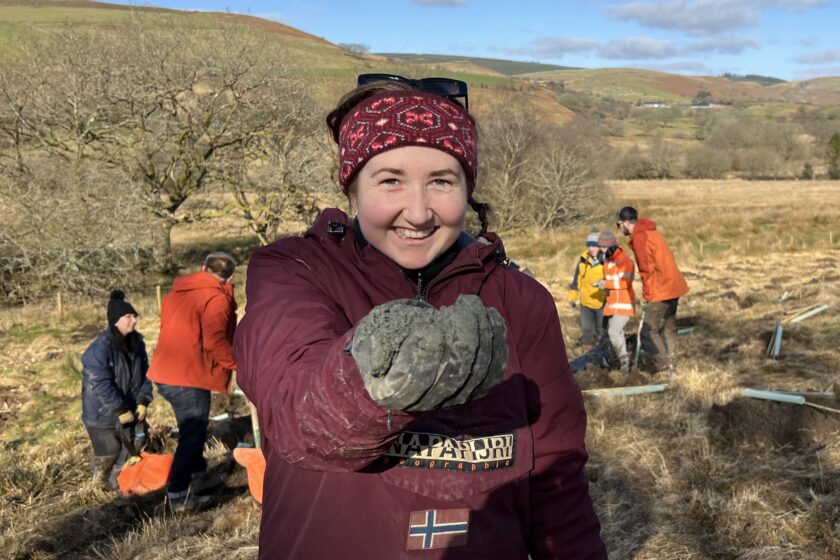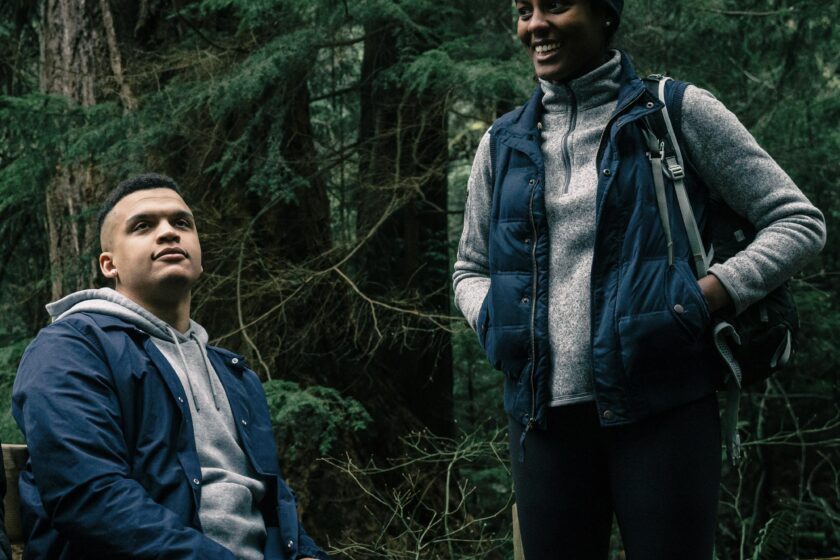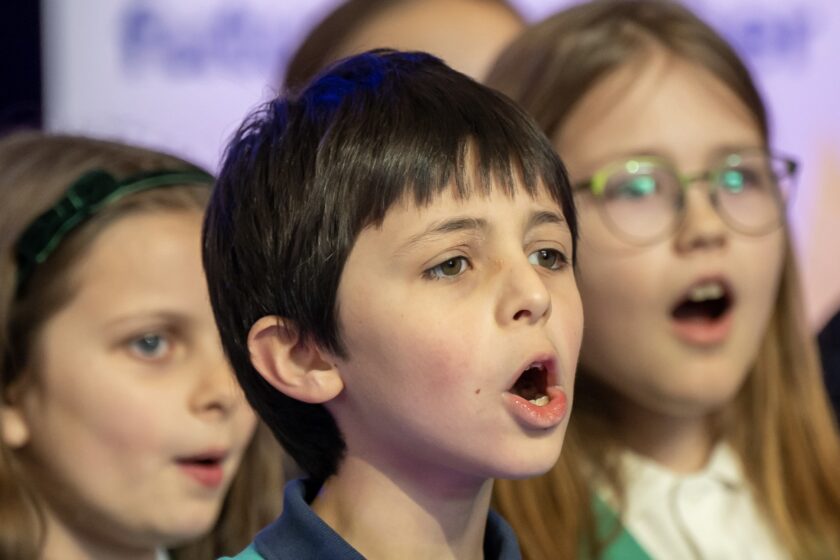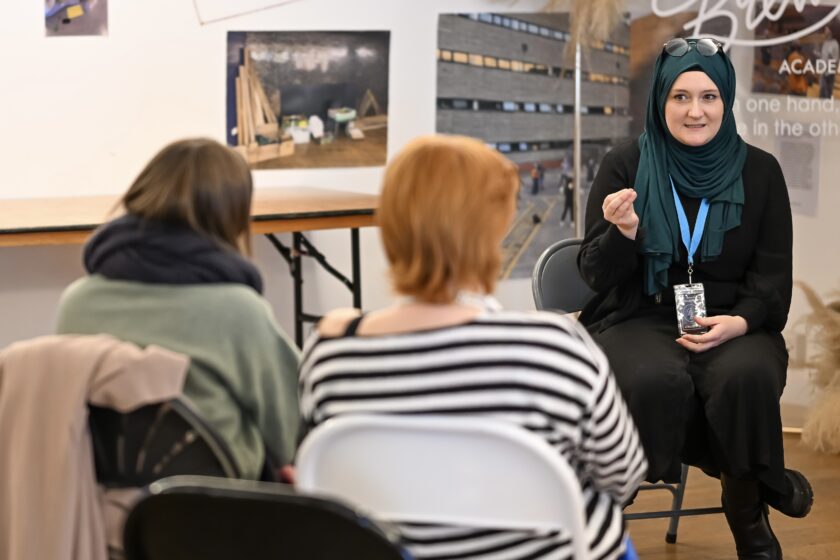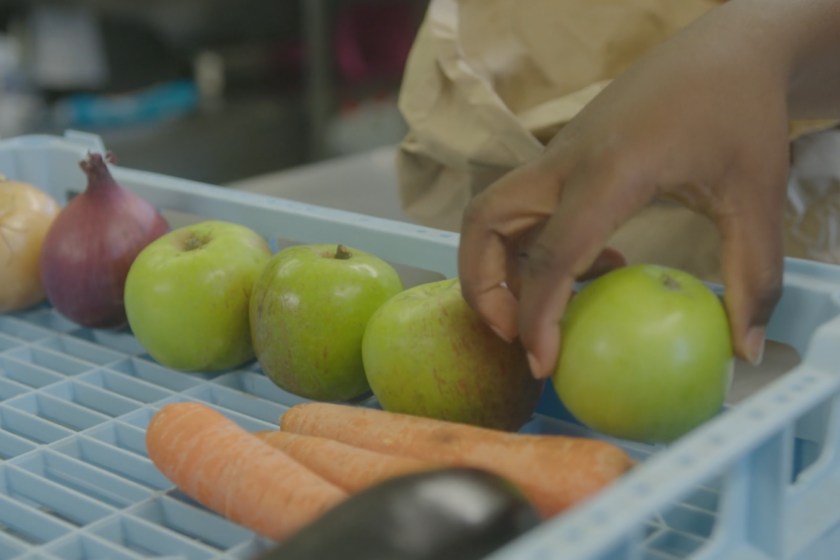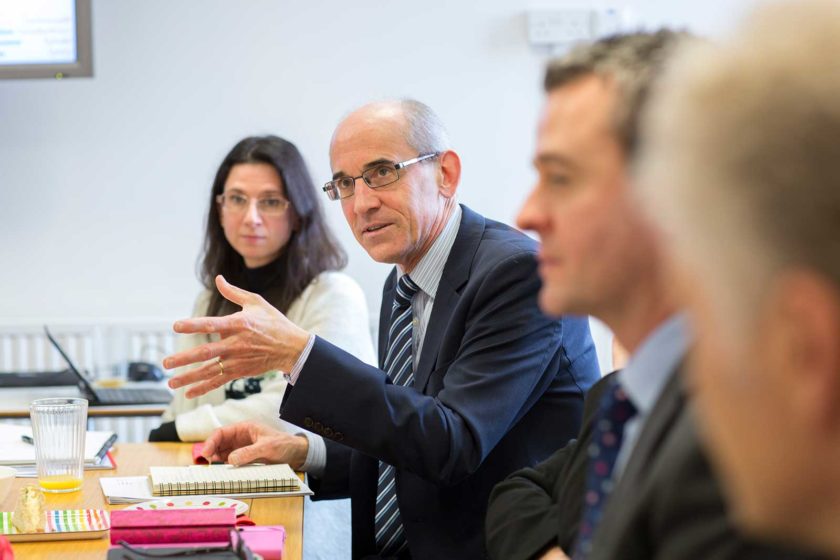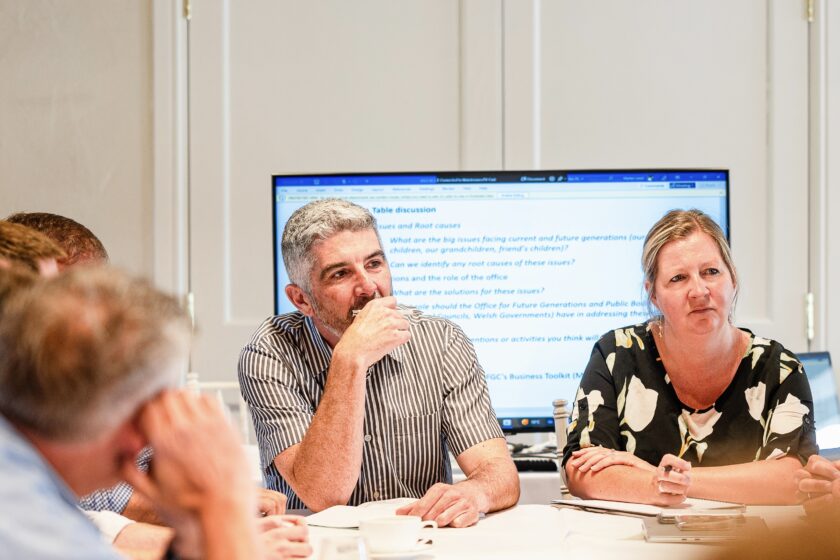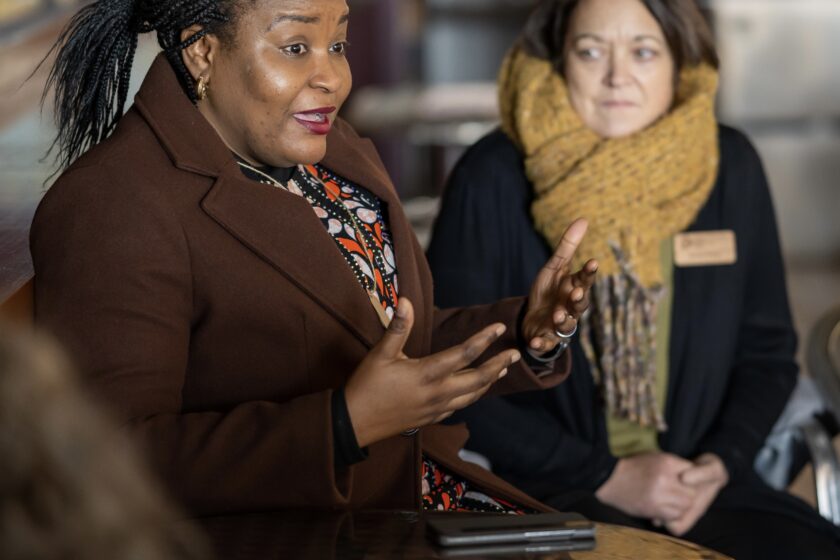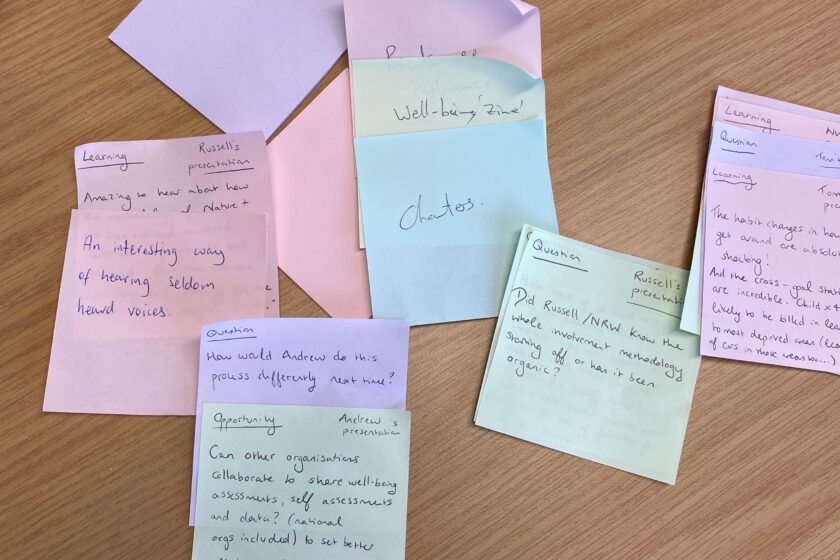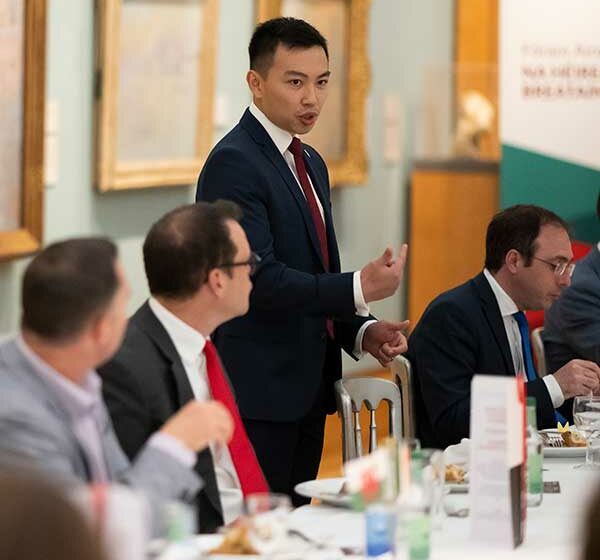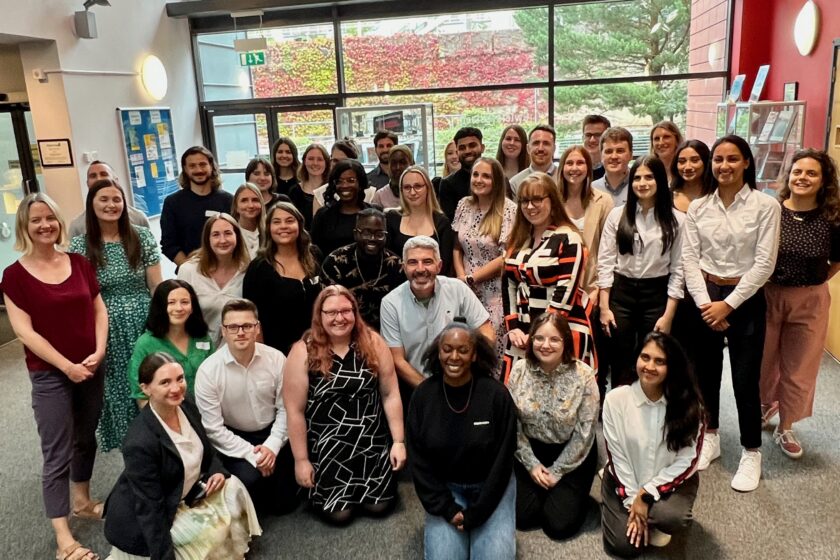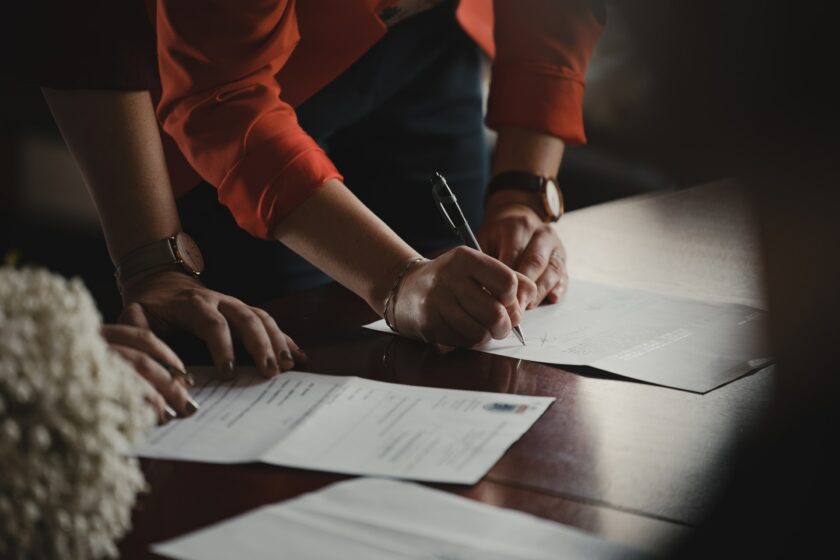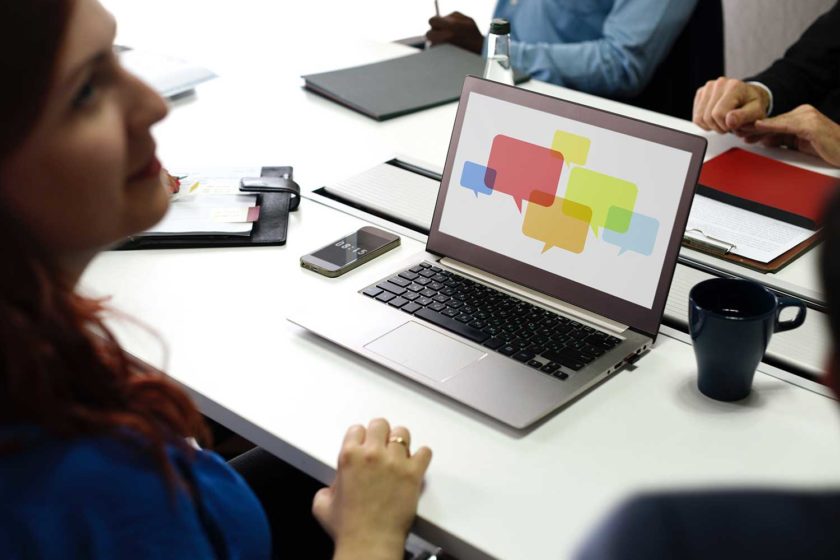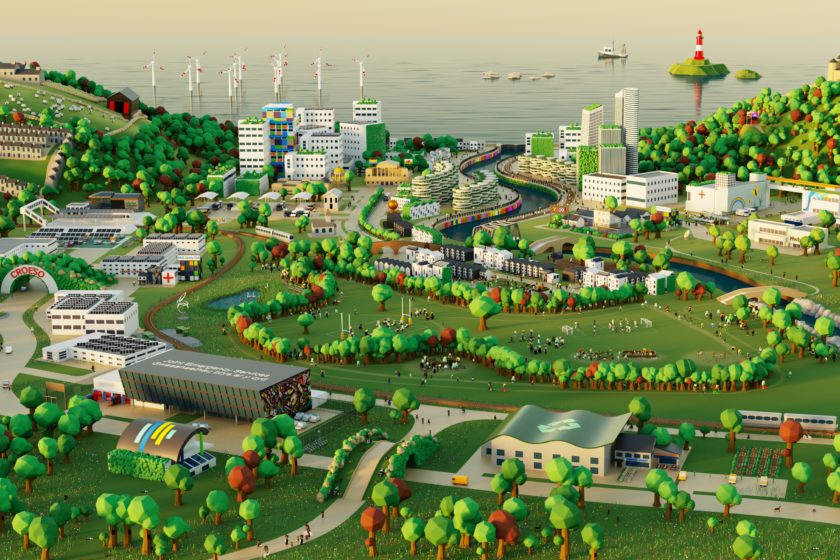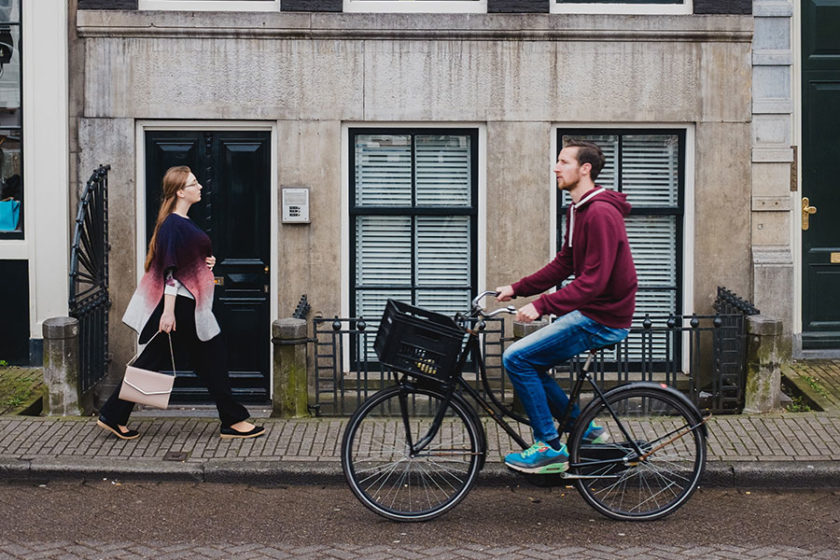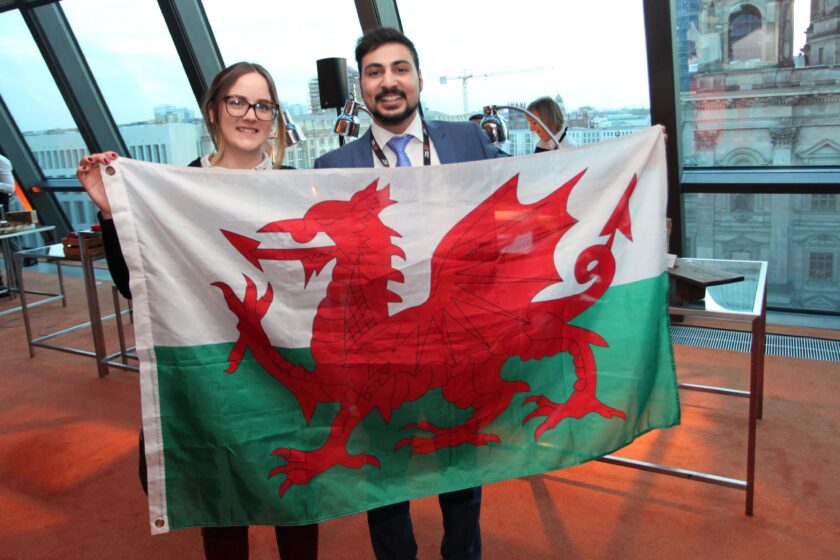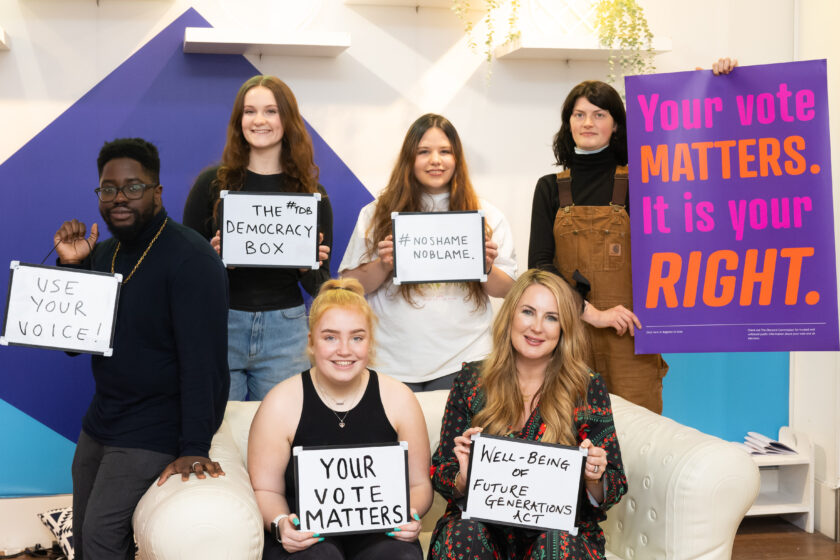Involvement
Being part of a movement for change
To achieve the five missions in our 2024 – 2030 strategy, Cymru Can, we’ll need to collaborate widely and involve people across sectors, across Cymru.
Achieving long-term change for future generations will require a very broad movement for change, mobilising people from all backgrounds to be part of changing how we live, work and plan for the future.
We won’t achieve any of this alone. The next steps of this work will be to join forces with organisations and changemakers who can help us in achieving maximum impact.
Engaging with Public Services Boards and at all levels within public bodies will be vital, including close co-operation with organisations that also support Cymru in achieving the Act, like Audit Wales, Welsh Government, Academi Wales and the Welsh Local Government Association. We also recognise the role that the huge network of town and community councils play.
Public services don’t exist in isolation – a key component of Cymru Can is continuing to work with the voluntary sector, community groups, the business sector, higher and further education, research institutions, think-tanks and with fellow commissioners, who understand what works and, between them, hold levers for change.
In taking forward Cymru Can we will:
- Seek out and value independent expertise, lived experiences and diverse voices.
- Understand our unique role in tackling complex issues.
- Share learnings, amplify the messages of others and advocate together where necessary.
- Listen to what people tell us about what’s working, what needs to change and where we’re best placed to help that happen.
- Promote Wales’ place on the world stage.
The involvement and co-production that led us to Cymru Can will underpin our work going forward, including as we prepare for the next Future Generations Report 2025.
If you’re interested in any of our five mission areas, please get in touch to discuss how we might work together. You can email us at contactus@futuregenerations.wales
Involvement is at the heart of the Well-being of Future Generations Act.
Since the creation of the Future Generations Commissioner in 2016, our office has involved thousands of people to support and inform our work. Some of the involvement projects we have undertaken to date include:
Our Future Focus
The work to develop Cymru Can began In March 2023, with the appointment of the second Commissioner, Derek Walker. Our team began the process of reviewing work priorities and undertaking further research and involvement to inform our strategy for 2024 – 2030. This work was called Our Future Focus and spanned eight months. We used a variety of involvement methods throughout the process, in keeping with the good practice laid out in the principles of public engagement. These included holding events in partnership with our Future Generations Changemaker 100 network and convening sector specific roundtables.
In addition to organising our own events, we spoke with networks and organisations via forums that were already in existence, formed an Advisory Group to review and be ‘critical friends‘, established a Community Partnership Scheme which supported local community organisations financially to plan and hold their own events with diverse audiences, and used the Commissioner’s meetings to inform our work.
We also created an online survey in partnership with Miller Research to hear views from a wide range of stakeholders and provide a parallel involvement pathway.
Correspondence and requests we received during this period were also considered in Our Future Focus.
In developing our communication tools for Cymru Can we also worked with a wide number of people with lived experience of making change, and of the barriers and challenges that Cymru still faces in making sure that the Well-being of Future Generations Act is implemented effectively. You can read more about these individuals are their stories here.
All of the involvement data we gathered during Our Future Focus will continue to inform the delivery of our five missions and our next Future Generations Report 2025.
For more information on Our Future Focus and how we involved people across Wales in creating Cymru Can – our work strategy and missions, read our Methodology Report.
Democracy Box partnership – co-creating resources for young people
In 2021 – 22 we worked in partnership with Omidaze to engage with their projects including the Democracy Box, and The Talking Shop. Through this partnership work with young co-creators aged 16-26 we co-produced a range of resources about the Well-being of Future Generations Act, including videos, songs, podcasts, spoken word and dance. You can access these products on the Democracy Box website.
We also worked with the young co-creators in publishing our Manifesto for the Future: Our Local Elections. This partnership included co-creating engaging resources on the Well-being of Future Generations Act by young people, for young people. We co-produced a podcast, songs, poems and more resources through this work which are available on Spotify and YouTube.
Communities and Climate Change in a Future Wales
In 2021 we worked in partnership with Public Health Wales and Liverpool University to involve communities in research about climate change, via storytelling. You can read more about this work here.
Manifesto for the Future
In advance of the 2021 Senedd Elections, our office published Manifesto for the Future, a document outlining recommendations we believed political parties should consider within their manifesto work.
As part of this work, we also involved young people to digest our Future Generations Report 2020 and to hear their vision for Our Future Wales. Children and young people from Avant Cymru, Disability Arts Cymru and the Wales Federation of Young Farmers Clubs developed a young person’s interpretation of the report, the key messages and what they need for their future Wales. You can find the song and poem they wrote here.
Future Generations Report 2020
In 2019 and 2020, in order to produce the Future Generations Report 2020, our office used the following specific and additional methods of involvement:
- The People’s Platform
- Big Ideas campaign
- Regional stakeholder Our Future Wales events
- Roundtables and meetings
- Pop-up conversations
- Written submissions to Our Future Wales
- Survey about our draft recommendations
Establishing the first Commissioner’s areas of focus
In 2017, the first Commissioner undertook a large piece of work, engaging with academics, stakeholders, experts, and the public to identify areas of focus; these were where office resources were dedicated. The areas of focus included:
Creating the right infrastructure for future generations, with a focus on:
- Planning
- Transport
- Housing stock
Equipping people for the future, with a focus on:
- Skills for the future
- Living well
- Preventing and addressing Adverse Childhood Experiences (ACEs)
Cross-cutting areas of corporate change:
- Decarbonisation
- Strategic budget
- Procurement
For further information on our involvement work, please read our annual reports.
